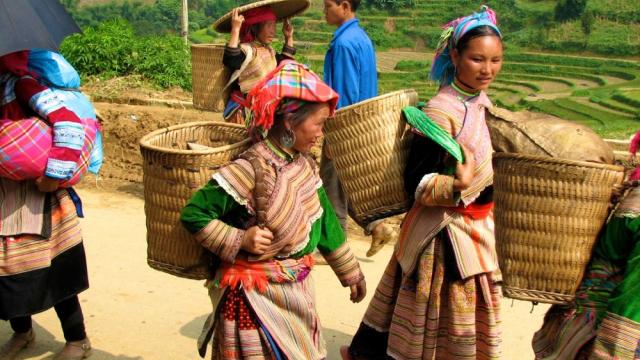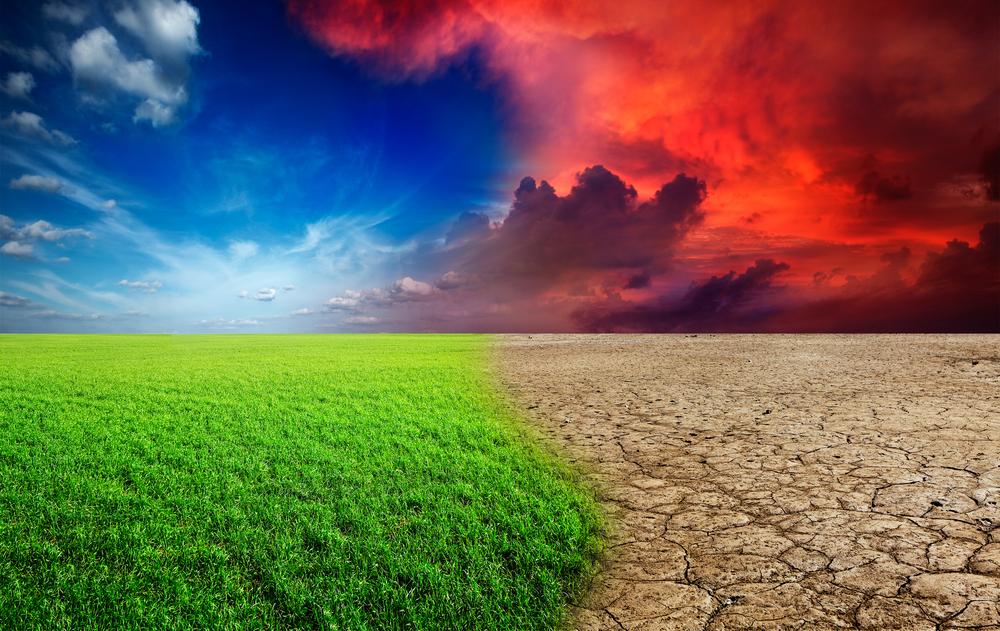
A man of the Co Tu nation prepares to fish in a river that likely supported humans long before historical records began. But this might be one of the last times. Small-scale, high-pollution gold mining is spreading across the lands of the Co Tu, in the Central Highlands of Vietnam, as well as larger corporate extractive industries.
Around the fisherman, large diesel-powered sifting machines dredge the water, discoloring the wide river with a brown, oil-stained effluent. The discharge contains a high concentration of heavy metals including mercury, which will poison the fish and those who eat them. Further upstream, I walk around an open cast gold mine, a swathe of mud hills and tailings ponds. Until recently, this area was as rich in biodiversity as the tropical rainforest that surrounds it.
I discover that the workers extracting the gold are from different indigenous nations. Vietnam has 54 recognized indigenous groups distinct in language, culture and means of livelihood. These workers left their communities as their livelihoods became untenable due to a vast expansion of "economic development." A Vietnamese NGO worker accompanying me during my research makes it possible to interview the fisherman and gold prospectors.
Vicious Circle of Capitalism
Those who fished and relied on the river for their sustenance will be likely forced to shift their livelihood to become part of the global extractive economy. This is the vicious circle of capitalism, which is speeding up the destruction of the commons, driven by a world economy based on consumption and growth. The bigger the economy grows, the more that rich, bio-diverse areas shrink.
“Running an economy on energy sources [and resources] that release poisons as an unavoidable part of their extraction and refining has always required sacrifice zones,” writes Naomi Klein in her recently released book "This Changes Everything: Capitalism vs. the Climate."
Klein asserts how these sacrifice zones, until recently, predominantly destroyed areas where local people were considered "less than fully human." This colonialist and capitalist reasoning applies especially to indigenous first nation peoples; according to the narrative, by shifting to paid livelihoods, both fisherman and gold prospectors alike are said to go through a process of "development."
Her book argues that the genocide of indigenous nations must stop: that the globalized world needs to reverse the annihilation of traditional people for both the indigenous people’s sake and for the rest of the world’s survival. Crucially, too, Klein defines a pathway to reverse the vicious circle of capitalism.
“The day capitalism is forced to tolerate non-capitalist societies in its midst and to acknowledge limits in its quest for domination, the day it is forced to recognize that its supply of raw material will not be endless, is the day when change will come.”
In the book's final section, Klein quotes the author Arundhati Roy in seeking to explain how we can regenerate the world rather than continue down the destructive pathway of capitalism.
According to Roy: “The first step toward re-imagining a world gone terribly wrong would be to stop the annihilation of those who have a different imagination – an imagination that is outside of capitalism as well as communism: an imagination which has an altogether different understanding of what constitutes happiness and fulfilment. To gain this philosophical space, it is necessary to concede some physical space for the survival of those who may look like the keepers of our past but who may really be the guides to our future.”
In 2000, academic and indigenous advocate Markus Colchester suggested that up to 85% of the world’s most bio-diverse protected forest eco-systems are on indigenous people’s lands. A great deal of my own research in Vietnam was on the fringe of these two worlds: between traditional lives and the globalized world with its ever encroaching mono-cropping, mining, hydro-electric dams and other extractive projects.
Indigenous peoples have protections and rights, including the UN International Labour Organisation Convention 169, which enshrines people's land sovereignty among other protections. But these laws have been frequently neglected or ignored. Worse, in some cases corporations and governments actually deny the existence of non-contacted indigenous peoples, enabling them greater time and access to steal resources – and, on occasion, to kill with impunity – as is happening now in Peru.
Indigenous People Leading the Way
Klein asserts that these marginalized peoples who are victims of centuries of genocide now stand as one of the world’s best defenses against the capitalist system’s endless, suicidal cycle of consumption. She points out how we are currently on track to use up resources and oil to the point that the world becomes uninhabitable – not least from water scarcity and climate catastrophe, which is the main focus of the book.
The growing power of indigenous peoples’ rights is shown especially in New Brunswick, where traditional peoples are leading the fight against fracking. Klein points to the First Nations of Canada, which have held back the growth of the tar sands, and to people native to the Arctic and Amazon who are challenging capitalist extractive industries as well. Epitomizing the power of these legal challenges is the case of the Beaver Lake Cree of Alberta, who have filed a challenge to stop tar sands on their lands.
Klein says of the Beaver Lake Cree, “It was not about one particular infringement, but an entire model of poisonous, extractive development, essentially arguing that this model itself constituted a grave treaty violation.”
A core point Klein makes about these legal challenges is that governments to a great extent pick and choose which laws to enforce. For instance, they stick to the letter of trade laws more than environmental regulations or indigenous rights. But Klein suggests that this can change, due in part to recent pressure from a growing climate change movement. However, she emphasizes that it's on the ground, and the grassroots level, where the fight against climate change and unsustainable resource extraction needs to stay focused.
Klein defines the vicious circle of capitalism as a Catch-22 as industries across the world, for example, kill the fish, poison the land or spoil the areas for other economic activities such as tourism – yet this meanwhile “strengthens the power of fossil fuel companies, because they end up the only game in town.”
To break the vicious circle, Klein looks to the example of the Cheyenne people of southern Montana. The coal industry wanted to mine their reservations, which would mean polluting their lands, water and air, creating another sacrifice zone. The opposition was weak to begin, as the nation suffers from acute poverty. Many were also dazzled by the coal industry's promises of employment and money.
Then something changed. A community program began to install solar heaters on dilapidated houses and to train locals with the devices. Klein says this empowered the people in two ways: by providing them with energy to replace and reject coal, and by creating jobs in a regenerative industry that enabled them to reject financial offers from the mining industry.
Klein concludes: “There is no more potent weapon in the battle against fossil fuels than the creation of real alternatives.”

3 WAYS TO SHOW YOUR SUPPORT
- Log in to post comments













